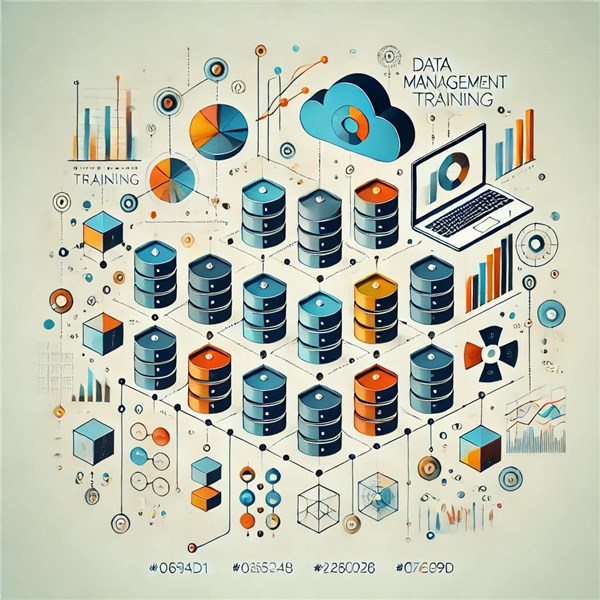Unable to find what you're searching for?
We're here to help you find it
In today’s digital-first business landscape, data is more than a by-product — it’s a strategic asset. Organizations rely on data for decision-making, customer engagement, compliance, and innovation. However, bad data costs businesses billions annually, and most of it stems from poorly managed systems and undertrained personnel.
This is where data management training becomes mission-critical.
An effective data management training program goes far beyond spreadsheets and SQL. It equips teams with a foundational understanding of data principles, as well as the tools and best practices necessary to ensure high data quality, governance, and compliance — all while fostering a data-literate culture.
In this blog, we’ll break down the core components of an effective data management training program — so you can evaluate, implement, or improve your organization’s approach to upskilling in the era of data.
What It Covers:
Why It Matters:
Data governance is the foundation of any enterprise data strategy. Training helps participants understand who is responsible for what and how data should be handled to avoid security breaches, misuse, or regulatory penalties.
Effective training ensures teams adhere to standardized procedures when collecting, storing, or sharing data — reducing inconsistency and risk across the organization.
What It Covers:
Why It Matters:
Poor data quality leads to bad decisions, customer dissatisfaction, and operational inefficiencies. Training teaches participants how to assess and improve data integrity, ensuring all business units work from reliable and trustworthy information.
What It Covers:
Why It Matters:
Disparate systems often lead to duplicate or inconsistent records. Effective training helps organizations build consistent definitions, hierarchies, and relationships across systems, which is essential for enterprise-wide visibility and reporting.
What It Covers:
Why It Matters:
Metadata describes the context of data — where it came from, how it’s structured, and how it should be used. Without it, users lack visibility into data assets, leading to inefficiencies and misuse. Training teaches how to catalog, govern, and access this critical layer of information.
What It Covers:
Why It Matters:
Training in data architecture helps technical and business users understand how data is structured and flows throughout the organization. This component is particularly essential for IT teams, analysts, and developers responsible for data-driven applications.
What It Covers:
Why It Matters:
Organizations operate on a multitude of systems — and data must flow seamlessly between them. Training in integration ensures participants know how to move, transform, and reconcile data across platforms, enabling smooth business operations and unified analytics.
What It Covers:
Why It Matters:
As data privacy regulations tighten, training your team on how to protect sensitive data is no longer optional. This component ensures every stakeholder understands their role in safeguarding organizational data — and helps maintain compliance and customer trust.
What It Covers:
Why It Matters:
Even the best data is useless if no one understands it. Data literacy is about empowering staff at all levels to think critically about data, ask the right questions, and use insights to drive action. This is crucial for building a data-driven culture.
What It Covers:
Why It Matters:
Concepts are important — but so are practical skills. Training that incorporates real-world tools ensures participants can apply their knowledge immediately, increasing adoption and reducing time to value.
What It Covers:
Why It Matters:
Data management is a team sport. Training must empower users to become data stewards — individuals who take ownership of data quality and promote good practices within their teams.
Data management training is relevant for:
Whether technical or not, every role that touches data can benefit from learning how to manage it correctly.
|
Benefit Area |
Business Impact |
|---|---|
|
Data Quality |
More reliable reporting and fewer errors |
|
Compliance |
Reduced legal risk and improved audit readiness |
|
Efficiency |
Less time spent cleaning or fixing data |
|
Collaboration |
A shared understanding of terms and data usage |
|
Decision-Making |
Faster, more confident business insights |
🧭 Final Thoughts
Data is now the lifeblood of modern business, and managing it correctly is more important than ever. But having the right tools and systems is only part of the equation — your people must be trained to use them wisely.
The most effective data management training programs are comprehensive, role-specific, and practical. They equip your teams with the knowledge, tools, and mindset to manage data with integrity, efficiency, and strategic value.
✅ Final Takeaway:
If your organization wants to become truly data-driven, investing in a structured, well-rounded data management training program is the first step. It’s the smartest way to turn data into a long-term competitive advantage.
Koenig Solutions is a leading IT training company offering comprehensive data management certification training courses. Our training programs are designed to provide participants with a deep understanding of the core components of data management, preparing them for a successful career in the field.
Our courses are delivered by experienced professionals, ensuring participants gain practical skills and knowledge that can be immediately applied in the workplace. With a focus on hands-on learning and real-world examples, our training programs are a valuable investment for anyone looking to expand their data management skills.

Aarav Goel has top education industry knowledge with 4 years of experience. Being a passionate blogger also does blogging on the technology niche.










